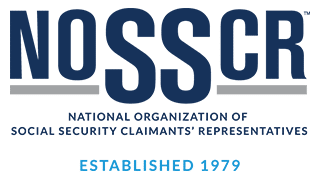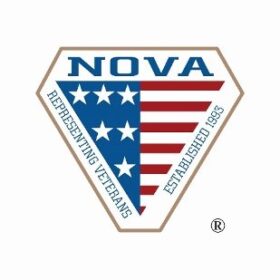Why Choose the SSD Attorneys at Hiller Comerford?
Choosing the right attorney can directly affect the amount of Social Security Disability benefits you receive and how long it takes to secure them. The SSD process involves strict rules, detailed medical requirements, and frequent denials, even for valid claims. Hiller Comerford Injury & Disability Law represents New Yorkers at every stage of the disability process with a clear focus on accuracy, strategy, and results.
Direct Attorney Involvement From Start to Finish
Your case is handled by a dedicated Social Security disability attorney in New York, not passed between departments. From your initial application through appeals and hearings, you work with the same legal team that knows your medical history, work background, and financial needs.
Focused on Maximizing Every Available Benefit
We do not just help you apply. We focus on securing the full range of benefits you may be entitled to, including SSDI, SSI, retroactive payments, dependent benefits, and medical coverage. Our attorneys understand how benefits are calculated and work to ensure nothing is overlooked.
Proven Advocacy at Every Stage of the SSD Process
Social Security Disability claims are often denied without strong legal support. Our attorneys gather detailed medical evidence, prepare persuasive filings, and represent clients before Administrative Law Judges. We manage deadlines, paperwork, and SSA requirements so you can focus on your health while we protect your financial future.
We Have a No-Fee Guarantee
You never pay us upfront. We only get paid if we win for you, so our success is directly tied to yours.
Free Case Evaluation
Speak with a lawyer at no cost. We’ll review your situation, explain your options, and help you understand the best path forward.
You’re More than a Case
We treat every client like family, taking the time to understand your story and guide you through every step with care and compassion.
Understanding Social Security Disability Benefits
Social Security Disability benefits are federal programs created to provide financial protection when a physical or mental condition prevents long-term employment. These programs are administered by the Social Security Administration and operate nationwide, but in New York, they work alongside state healthcare systems and supplemental payment programs that expand overall support.
Disability benefits are part of the Social Security system and are funded through specific federal sources. Understanding where these benefits come from helps explain why work history, income, and financial resources matter in the application process.
In New York, disability benefits come from two primary federal programs.
Social Security Disability Insurance (SSDI)
Social Security Disability Insurance is an insurance program funded through payroll taxes paid by workers and employers under the Federal Insurance Contributions Act. When a worker becomes disabled after earning enough work credits, SSDI provides financial protection based on their prior participation in the Social Security system.
SSDI is tied to:
- A person’s earnings history
- The number of work credits earned before disability
- Federal disability standards set by the Social Security Administration
Because SSDI functions as insurance rather than assistance, eligibility and benefit levels depend on past employment, not current financial need.
Supplemental Security Income (SSI)
Supplemental Security Income is a needs-based program funded by general federal tax revenues, not payroll taxes. SSI exists to support disabled individuals with limited income and resources, including those who do not qualify for SSDI due to insufficient work history.
SSI eligibility is determined by:
- Income from all sources
- Available financial resources
- Federal disability standards
In New York, SSI also serves as a gateway to state-administered healthcare coverage and supplemental payments, making it a foundational program for many disabled residents.
Federal Programs With New York Integration
While SSDI and SSI are federal programs, New York plays a role in how benefits are delivered. The state administers disability determinations, provides healthcare coverage linked to SSI, and adds state-funded supplemental payments. This federal-state structure increases the overall support available but also adds complexity to how claims are evaluated and maintained.
Who Qualifies for Social Security Disability Benefits?
To qualify for Social Security Disability benefits, an applicant must meet the federal definition of disability established by the Social Security Administration. A medical condition alone is not enough. The condition must be severe, long-term, and limiting enough to prevent substantial work activity.
Under SSA rules, a qualifying disability must:
- Prevent engagement in substantial gainful activity (SGA)
- Be expected to last at least 12 consecutive months or result in death
- Be supported by objective medical evidence from acceptable medical sources
The Social Security Administration evaluates disability using a structured, multi-step process that considers medical severity, functional limitations, and the ability to perform past or other work.
Medical Conditions That May Qualify
Social Security does not approve or deny claims based on diagnosis alone. Instead, it evaluates how a condition limits a person’s ability to function in a work setting. That said, qualifying disabilities often fall into several broad categories.
- Severe Physical Impairments: Conditions that significantly limit mobility, strength, endurance, or organ function, such as neurological disorders, cardiovascular disease, or musculoskeletal impairments.
- Chronic and Autoimmune Conditions: Long-term illnesses that cause persistent symptoms or flare-ups that interfere with consistent work, including conditions affecting the immune system, joints, or digestive tract.
- Mental Health and Cognitive Disorders: Psychiatric and neurocognitive conditions that affect concentration, judgment, emotional regulation, or the ability to interact appropriately in a work environment.
- Conditions Involving Pain, Fatigue, or Cognitive Limitations: Disabilities where symptoms such as chronic pain, severe fatigue, brain fog, or processing difficulties reduce the capacity to maintain full-time employment.
In New York, initial disability determinations are made by the New York State Office of Temporary and Disability Assistance, Division of Disability Determinations, applying federal SSA standards. Examiners review medical records, treatment history, diagnostic testing, and functional limitations when deciding a claim.
Approval depends on:
- Consistency of medical evidence
- Treatment history and response
- Documented limitations affecting work-related activities
Meeting technical eligibility rules and presenting clear medical support are both essential to a successful claim.
Watch Kenneth Hiller in his latest interview, discussing Social Security Disability benefits, as well as the difficulties claimants deal with in getting approved, and why Hiller Comerford Injury & Disability Law can help you through the process and get you the benefits you are entitled to.
What Types of SSD Benefits Are Available in New York?
Social Security Disability benefits provide more than a single monthly payment. In New York, approved applicants may receive a combination of income support, healthcare coverage, family benefits, and past-due payments. The exact benefits depend on whether the claim is approved under SSDI, SSI, or both.
Monthly Cash Benefits
Both SSDI and SSI provide monthly payments intended to replace income lost due to disability.
SSDI monthly benefits are calculated based on a person’s lifetime earnings and work history. Individuals who earned more and paid more into Social Security typically receive higher monthly payments.
SSI monthly benefits are based on federal payment limits and adjusted for income, resources, and living arrangements. In New York, SSI recipients may also receive a state-funded supplement that increases the total monthly amount.
Medical Coverage Benefits
Healthcare access is a major component of Social Security Disability support.
SSDI recipients become eligible for Medicare after 24 months of entitlement to disability benefits. Medicare helps cover hospital care, physician services, diagnostic testing, prescription medications, and durable medical equipment.
SSI recipients in New York generally qualify for Medicaid as soon as benefits are approved. Medicaid provides broad medical coverage, including primary care, mental health treatment, prescription drugs, and long-term services when needed.
Dependent and Family Benefits
SSDI benefits may extend beyond the disabled worker.
Certain family members can qualify for auxiliary benefits based on the worker’s earnings record. These may include spouses caring for a qualifying child, minor children, and adult children with disabilities that began before age 22. Family benefits help maintain household stability when a disability affects a primary income earner.
SSI does not provide dependent benefits, but household income and support can affect payment amounts.
Back Pay and Retroactive Benefits
Approved applicants may receive past-due benefits to account for delays in the claims process.
SSDI back pay may include retroactive benefits dating back to the established onset of disability, subject to federal limits. SSI back payments are generally calculated from the application date forward and may be paid in installments.
These payments are intended to help cover living expenses, medical costs, and financial obligations that accumulated while the claim was under review.
Benefit determinations involve complex rules governing earnings records, income calculations, medical eligibility, family benefits, and retroactive payments. A Social Security Disability attorney at our firm can help you identify all available benefits, present accurate documentation, and safeguard those benefits throughout the process, reducing the risk of delays, underpayments, or unnecessary denials.
How an SSD Attorney Can Maximize Your Benefits
Social Security Disability claims follow strict federal rules, but the application and appeal process has nuances where legal experience directly affects outcomes. In New York, disability claims are initially evaluated by the Division of Disability Determinations (DDD) using SSA’s Listing of Impairments and functional criteria. A New York SSD attorney helps clients navigate key decision points where mistakes commonly lead to denials, delays, or incomplete benefit awards.
✓ Accurately document functional limitations. Attorneys translate medical records and daily activity restrictions into clear evidence that shows how a condition prevents substantial gainful activity. They work with doctors and therapists to provide statements that meet SSA Residual Functional Capacity standards.
✓ Gather and organize medical evidence. Attorneys request complete treatment records, test results, and longitudinal documentation from hospitals, clinics, and specialists. This ensures that New York DDD examiners have the full picture of a claimant’s condition.
✓ Use Listings and vocational analysis strategically. Attorneys compare a client’s condition to SSA’s Listing of Impairments and argue equivalence when appropriate. They also prepare vocational analyses to show why a claimant cannot perform past or alternative work.
✓ Represent clients at hearings before Administrative Law Judges. If a claim is denied, attorneys prepare detailed hearing briefs and present oral arguments. They question medical and vocational experts and respond to judge inquiries to advocate effectively for approval.
✓ Handle appeals and federal review when necessary. Attorneys can file Appeals Council requests or federal court actions to address procedural or legal errors in ALJ decisions. This protects claimants’ rights and preserves opportunities for approval.
✓ Maximize all potential benefits. Attorneys identify retroactive payments based on the established onset date, calculate back pay accurately, verify dependent benefits for spouses and children, and advise on New York State SSI supplements.
✓ Manage procedural compliance and deadlines. Attorneys track all SSA filing deadlines, complete forms correctly, and request subpoenas when needed. This reduces the risk of denials due to technical errors or late submissions.
Data shows that the largest gap in approval rates occurs at the hearing stage before Administrative Law Judges, where represented claimants are significantly more likely to be approved compared to those without legal representation, often achieving success rates of around 65 percent to 75 percent versus about 45 percent to 50 percent for self‑represented applicants.
Frequently Asked Questions
Are there limits on how much SSDI or SSI I can receive in New York?
Yes. SSDI benefits are based on your lifetime earnings and are capped according to federal rules. SSI payments follow federal limits for basic needs, with additional New York state supplements adjusting the total amount. These limits are designed to provide a minimum standard of living while preventing overpayment relative to need or prior earnings.
How are dependent benefits calculated for SSDI in New York?
Dependent benefits are calculated as a percentage of the disabled worker’s primary SSDI benefit. Spouses caring for children, minor children, and certain adult children with disabilities may qualify. The total of all dependent benefits combined with the worker’s SSDI cannot exceed a federal maximum family limit, which varies by year.
Can SSD benefits include special payments for particularly severe disabilities?
In some cases, additional benefits may be available for recipients with severe or permanent disabilities. While federal SSDI and SSI do not have separate “severity payments,” New York state supplements can vary depending on living arrangements or extraordinary medical needs. Certain federal programs may also offer one-time or ongoing additional support, such as Medicare or Medicaid waivers.
Do SSD benefits in New York cover long-term care or home health services?
Direct SSD benefits do not pay for long-term care. However, SSDI recipients qualify for Medicare after 24 months, which may cover some skilled nursing or home health services. SSI recipients qualify for Medicaid immediately, and New York Medicaid programs can cover long-term care, home health aides, and other supportive services when medically necessary.
Are there cost-of-living adjustments (COLA) for SSD benefits in New York?
Yes. Both SSDI and SSI are subject to annual cost-of-living adjustments based on the Consumer Price Index. New York SSI supplements may also be reviewed and updated periodically to reflect changes in living expenses or state funding formulas.
How soon will I start receiving SSD benefits in New York?
For SSDI, there is a five-month waiting period from your disability onset before payments can begin. After approval, it usually takes one to two months to receive the first check. SSI payments can start as soon as the application is approved, though processing may take several weeks. Retroactive payments may also be issued to cover the period from your disability onset or application date. An attorney can help avoid delays by making sure your application is complete and properly documented.










